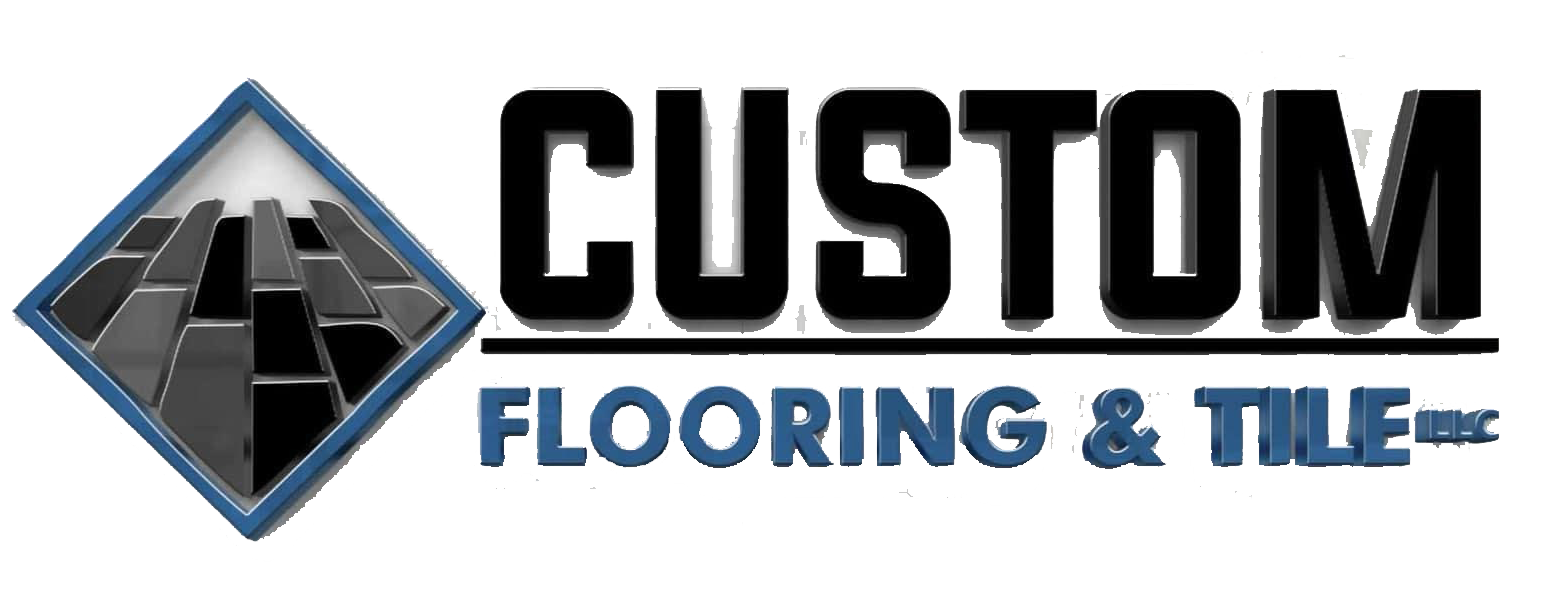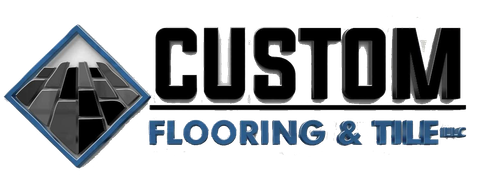Elevate Your Home With Professional Flooring & Tile Installation Services
Let's work together to create a space you'll love for years to come!
depend on us to get it done right
Invest in your home today and enjoy the benefits of a beautiful new bathroom or stylish new floors
Your kitchen and bathroom are two of the most important rooms in your home. They should be a welcoming space for guests and a relaxing zone for you. They also reflect your unique style and personality. Let the pros at Custom Flooring and Tile revitalize your home with our top-quality installation services. From tile showers to vinyl flooring, we can create a space thats right you for.
Call now to speak with a team member. We serve homeowners in a wide variety of locations including Cedar Rapids, Davenport, and Manchester, IA.
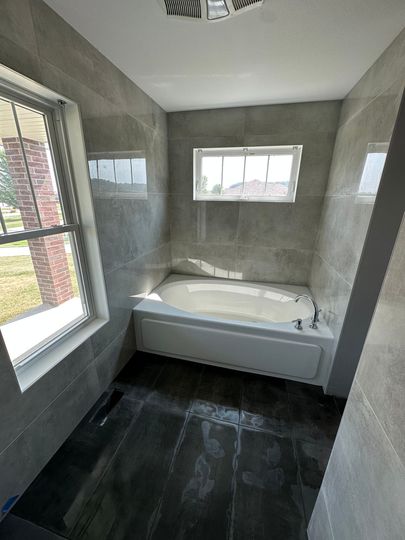
Our services
Learn more about the services we offer today!
Upgrade your bathroom with a brand new tile shower custom-built to fit your needs
Turn to us for Quality Tile Shower Installation services
You’ll feel confident working with us on your next home improvement project. Here’s why:
Why should you hire us?
We use top-quality materials to ensure your space is built to last - we're proud to work with Schluter Systems
Our attention to detail and commitment to customer satisfaction means you can expect a flawless installation that enhances both the beauty and value of your home
We value your time and strive to complete projects efficiently, without compromising quality
Partner with our licensed and insured flooring & tile company today. You wont regret it
What else can we do for you?
Our local tile company is here to make sure your kitchen or bathroom renovation project turns out the way you want.
Turn to us for:
- Hardwood flooring installation services
- Vinyl flooring installation services
- Tile shower installation services
- Tile flooring installation services
- Backsplash installation services
Schedule a design consultation today to get started on your next project.
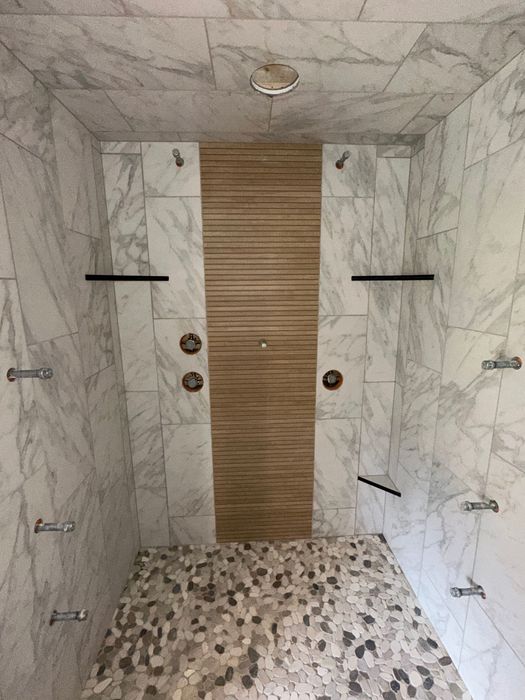
Choosing the right Tile for your home
With so many options to choose from, it is important to consider the following when shopping for Tile:
Color
Tiles come in a variety of colors. When deciding which one is right for you, think out whether you want to brighten up the room, or give it a warmer feel.
If you’re looking to brighten, lighter tiles are something to consider. Warm it up? Darker.
Lighter tiles are more likely to show scuffs/scratches and may need to be cleaned more frequently.
Sizing
Tiles also have many different size variations, ranging from 10’ x 15’ to as small as 3” x 6” and even 1/2” x 1/2” in some mosaics.
If your goal is to make your space appear larger than it really is, large format tile might be the way to go. Another benefit of large format tile is that it requires less cleaning with minimal grout lines.
Smaller tiles are likely to make your area feel more relaxing and cozier.
Thickness
Floor tiles are typically thicker, measuring up to 3/4” thick while most wall tiles are thinner, between 1/4” and 3/8”. Mosaic tiles can be as thin as 1/8”
Rating/Grading
The Porcelain Enamel Institute (PEI) is an organization that gives ratings and gradings on enamel products across America. Tile ratings range from 0-5, and asses the hardness and how much foot traffic they can handle. Tile with a PEI rating of 0 is the most fragile, and 5 being the most substantial.
Grading is an evaluation of the tile’s quality. Grade 1 tiles have little to no flaws, grade 2 tiles have some imperfections, and grade 3 tiles have flaws and should not be used in high traffic areas such as a bathroom, or kitchen floor.
It is important to check these numbers before making your purchase.
Material
If you are looking for a product that is suitable for wet areas, like a bathroom, avoid porous materials such as travertine or limestone.
The 12 types of Tiles
Ceramic and porcelain are the 2 most common tile materials used across the globe. Both are affordable, easy to clean, and great for high-traffic areas. They come in a large selection of sizes and designs. Porcelain is a low-maintenance, durable material that can even be used outdoors and will not freeze, dissipate, or crack. Ceramic tiles also require minimal maintenance; however, it does require more frequent cleaning (at least once a week) to maintain its best appearance.
Glass tile is recommended for use in low traffic areas and provides a clean and simple look. These tiles are stain-resistant and can be great for kitchen backsplashes, or accent walls. On the other hand, as you would expect, glass tiles can be easily susceptible to chipping along the edges.
Cement tiles are available in many different colors and patterns, good for both indoor and outdoor use. These tiles are highly porous and should be re-sealed once a month. It is best not to be used in high traffic areas.
If your end goal is to create a space that’s luxurious and high-class, although costly, marble tile might be the right choice for you. Having said that, its also important to keep in mind that marble tiles are high-maintenance and can be easily stained or scratched. For the best results, this material should be used only in low-traffic areas unless a sealant is applied.
Mosaic tiles come in an assortment of patterns, shapes, colors, and designs. Typically used for wall applications or feature walls, mosaics can be a great choice because they are easy to clean, and durable.
Granite is a natural stone similar to marble. Like other natural stones, granite is porous and recommended for use in a secondary space. Granite can be a cheaper alternative to marble, as it is less expensive and carries a similar look and feel.
Another natural stone, limestone tiles come in a vast variety of colors and coveys a natural, rich appearance. If sealed properly, this material is great for almost any space. Cleaning limestone can be a challenge. You should avoid using citrus and vinegar-based cleaning products, and instead use neutral pH cleaning agents.
Travertine tile, like limestone offers a unique and natural aesthetic. This material is also porous, and easily damaged by water, scratches, and stains. If you’re going to go apply travertine to floors, it is vital to know what kind of sealer and cleaning products to use.
Quarry tiles are recommended for use in high traffic areas because they are durable and slip resistant. Although they are nonporous and do not require a sealant, quarry tile is more likely to stain.
Metal tile incorporates a modern look and is built to last. However, it can be expensive and can also scratch and dent easily. Metal tile is not recommended for outdoor or high-traffic spaces.
Resin tiles are visually appealing and can mimic the look of water and stones. These tiles are water resistant, so they can be a great choice for wet areas such as a shower floor or mud room. But in spite of that, resin tiles tend to yellow over time when exposed to sunlight.
Hardwood Flooring
Hardwood flooring can be one of the best long-term flooring investments to be made. It will last a lifetime, unlikely to go out of style, and is environmentally friendly.
Solid vs. Engineered Hardwood
When most people think of hardwood flooring, they don’t realize there are actually 2 types of hardwood floors. Solid hardwood and engineered hardwood.
Solid hardwood flooring can be described as solid hardwood milled into flooring planks that join together like a puzzle through a tongue and groove system and is typically nailed or stapled to a wood subfloor or glued to concrete. Just as you would expect, solid hardwood tends to be the most durable, but over time can begin shrinking or warping causing gaps between boards when exposed to extreme moisture or humidity for long periods of time. In new construction generally, solid hardwood flooring is rough sanded during the early stages of production and the final coating occurs post-installation just before move-in. It can also come directly from the mill and be sanded/finished onsite post-installation. Pre-finished solid hardwood flooring has already been through numerous stages before leaving the factory, and more than likely will come with a factory warranty. And thanks to modern dust control sanding systems, all solid hardwood flooring can be sanded, and refinished multiple times without having to replace the wood or creating a big mess.
Engineered hardwood flooring is constructed from several thin layers of wood compacted and glued together, which is then later finished with a thin layer of solid hardwood on top, called a “wear layer.” Which means it cannot be sanded and refinished more than once and, in some cases, depending on the thickness of the wear layer, twice. It is less durable than solid hardwoods, but also more affordable and less likely to be affected by moisture or humidity. With the proper prep, engineered floors can be installed over virtually any floor, including tile and cement. Like solid hardwood, engineered floors are designed using the tongue and groove system and are similarly stapled or nailed to wooden subfloors or glued to concrete subfloors. Both solid and engineered hardwoods have a wide variety of finishes, so selecting the one that best fits your aesthetic and durability needs can be made easy.
Maintenance
Maintaining hardwood flooring is easy. Sweep floors regularly, as dust and dirt can wear into the finish. Floormats are something to consider at every entrance. Clean spills immediately, do not use a wet mop or oil-based soaps. Direct sunlight can cause the color to fade over time, limit direct sunlight with curtains or blinds. Shoes and high heels can also cause hardwoods to dent or scratch, so it would be wise to leave shoes at the door. To get the best results when cleaning, always check with the manufacturer to determine the appropriate cleaning products for your type of hardwood floor.
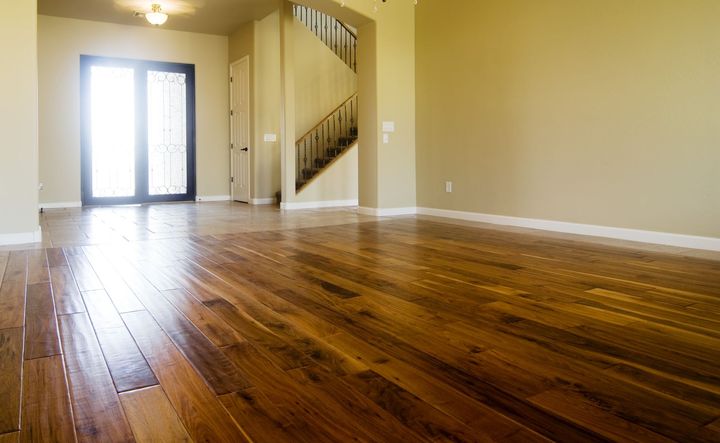
Copyright © Custom Flooring and Tile | All Rights Reserved
Custom Flooring & Tile
Dubuque, IA 52001
